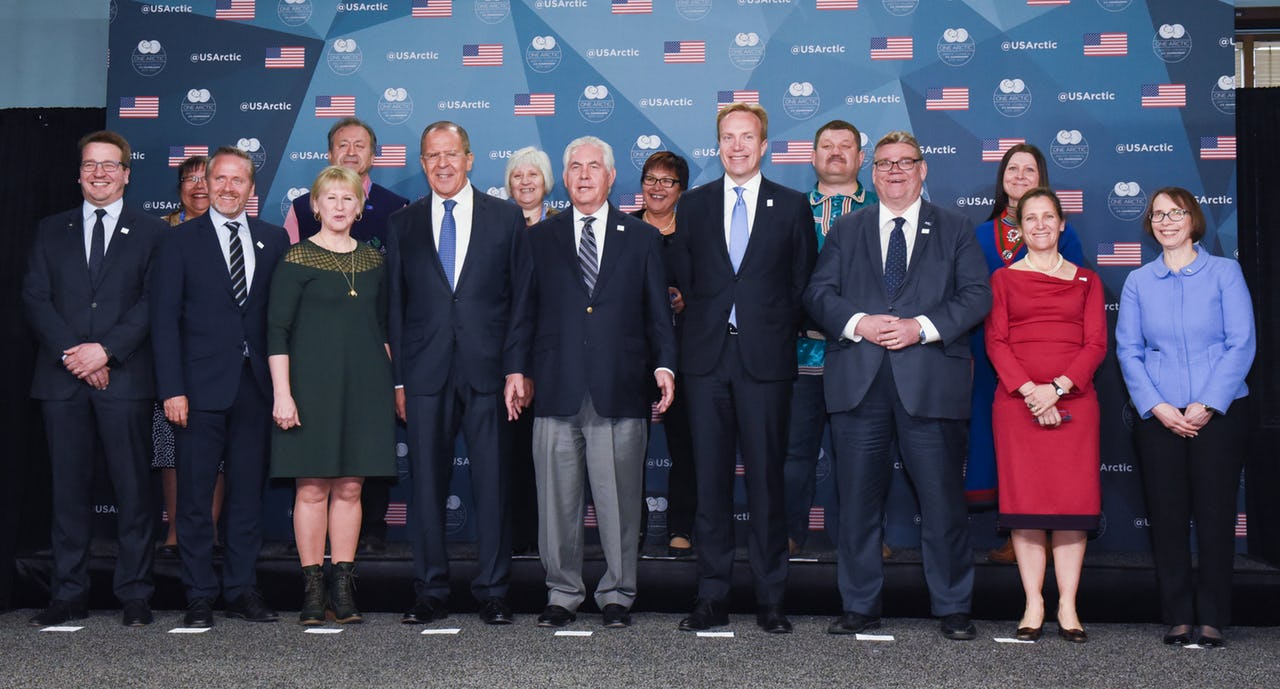Regional Order in the Arctic: Negotiated Exceptionalism

Arctic Foreign Ministers and Permanent Participant heads of Delegation share a laugh ahead of the Arctic Council Fairbanks Ministerial, May 11, 2017. Photo: Arctic Council Secretariat / Linnea Nordström
In a rapidly changing Arctic, there is a need to engage in a comprehensive investigation into what Arctic security means in the 21st century. Together with the Danish journal POLITIK, The Arctic Institute has, thus, published a Special Issue, which aims to widen the debate on Arctic security relations through a more comprehensive dialogue inclusive of the many different types of security, their interactions, and their challenges.
The Arctic Institute Arctic Security Constellation Series 2017
- Arctic International Relations in a Widened Security Perspective
- Desecuritization as Displacement of Controversy
- Soft Securitization: Unconventional Security Issues and the Arctic Council
- Regional Order in the Arctic: Negotiated Exceptionalism
- Arctic Indigenous Societal Security at COP21
- Post-colonial governance through securitization?
- What Kind of Nation State will Greenland be?
- The Arctic Security Constellation
Regional Order in the Arctic: Negotiated Exceptionalism
Traditional theories of International Relations have thus far failed to explain the unusual degree of cooperation seen in the Arctic between Russia on the one hand, and the seven Western Arctic states led by the United States on the other. Rather than witnessing a devolution into competition and conflict over strategic shipping routes and hydrocarbon resources, regional Arctic institutions have continued to grow in strength and number in the past several years, and transnational ties have deepened. This has prompted some observers to describe the Arctic as ‘exceptional’ – somehow immune to or isolated from global political competition.
This chapter argues that the Arctic regional order is exceptional insofar as Arctic states and those states with involvement in the region have worked to negotiate an order and balance of power predicated on norms such as cooperation and multilateralism. The establishment of an Arctic international society has seen great powers and smaller powers come together to form an order aimed at promoting norms and institutions not seen elsewhere in the world. By using an English School approach to understand the Arctic, we contend that Arctic international society has been deliberately negotiated in a way that promotes cooperation between Arctic states. However this order can be disrupted if Arctic international society does not take conscious steps to maintain a strong institutional framework that protects Arctic internationalism.
Heather Exner-Pirot (PhD) is Strategist for Outreach and Indigenous Engagement at the University of Saskatchewan and Managing Editor of the Arctic Yearbook. Robert W. Murray is Managing Director at Dentons Canada LLP’s Government Affairs and Public Policy Practice Group, Senior Fellow at the Macdonald-Laurier Institute, and Research Fellow at the Centre for Military, Security and Strategic Studies, University of Calgary, Canada.